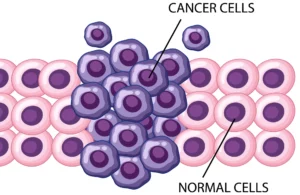 When it comes to skin health, vigilance is key. Among the various skin conditions that exist, basal cell skin cancer (BCC) stands out as one that demands our attention.
When it comes to skin health, vigilance is key. Among the various skin conditions that exist, basal cell skin cancer (BCC) stands out as one that demands our attention.
While often less aggressive than other types of skin cancer, BCC is not to be taken lightly.
Today, we delve into the world of basal cell skin cancer, exploring its characteristics, potential risks, and why early detection and intervention are crucial.
The Basics of Basal Cell Skin Cancer
Basal cell skin cancer originates in the basal cells, which are found in the deepest layer of the epidermis, the skin’s outermost layer. These cells play a pivotal role in producing new skin cells and replacing old ones.
However, when these cells undergo mutations due to factors like UV exposure, the result can be the development of basal cell carcinoma.
The Silent Growth
One of the dangers associated with BCC is its often slow and inconspicuous growth. At the outset, a small, shiny bump or a pale, waxy area might be mistaken for a benign skin issue.
This slow progression can lead individuals to overlook seeking medical attention until the cancer has become more advanced, potentially complicating treatment options.
Local Tissue Damage
While BCC might not pose the same immediate threat as more aggressive cancers, it can cause significant local tissue damage. As the cancer cells grow and invade surrounding tissues, they can lead to disfigurement and the destruction of critical structures like the eyes, ears, and nose.
Neglecting to address BCC promptly could result in long-term aesthetic and functional consequences.
Potential for Invasion
Although BCC tends to remain localized, in some cases, it can invade nearby structures, including bones and nerves. This potential for invasion underscores the importance of regular skin checks and dermatologist visits, particularly for individuals with a history of excessive sun exposure.
Early Detection and Intervention
The silver lining in the cloud of basal cell skin cancer is that it is highly treatable when detected early. Regular self-examinations and professional skin screenings can help identify suspicious spots or growths.
Early intervention through methods like excision, Mohs surgery, cryotherapy, or topical treatments can significantly increase the chances of complete recovery.
Basal cell skin cancer might not make headlines like its more aggressive counterparts, but its dangers should not be underestimated. Vigilance, proper sun protection, and regular dermatologist visits are essential in the battle against BCC.
Remember, the skin is the body’s largest organ and plays a crucial role in our overall well-being; taking care of it is not just a matter of aesthetics but of health.
Picture Credit: Freepik
